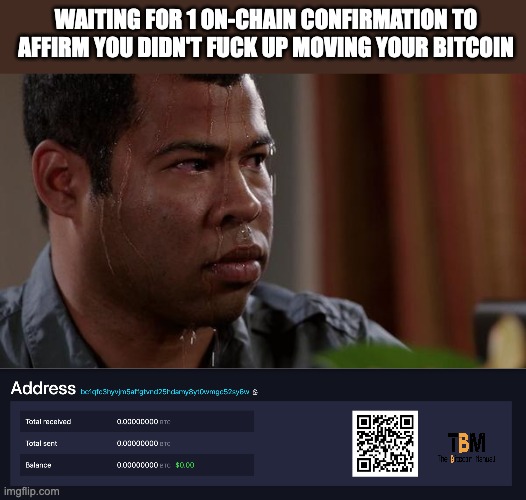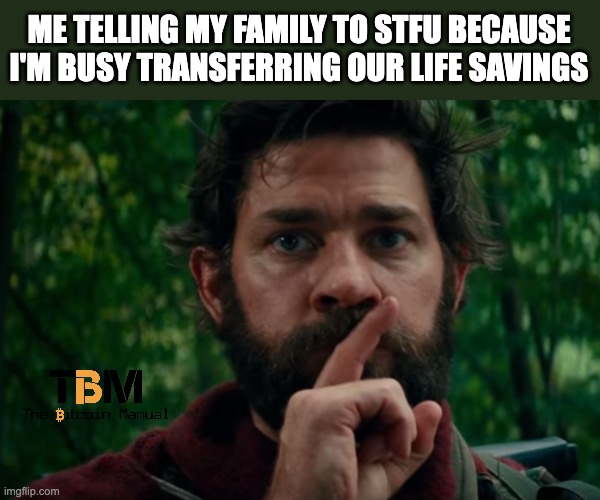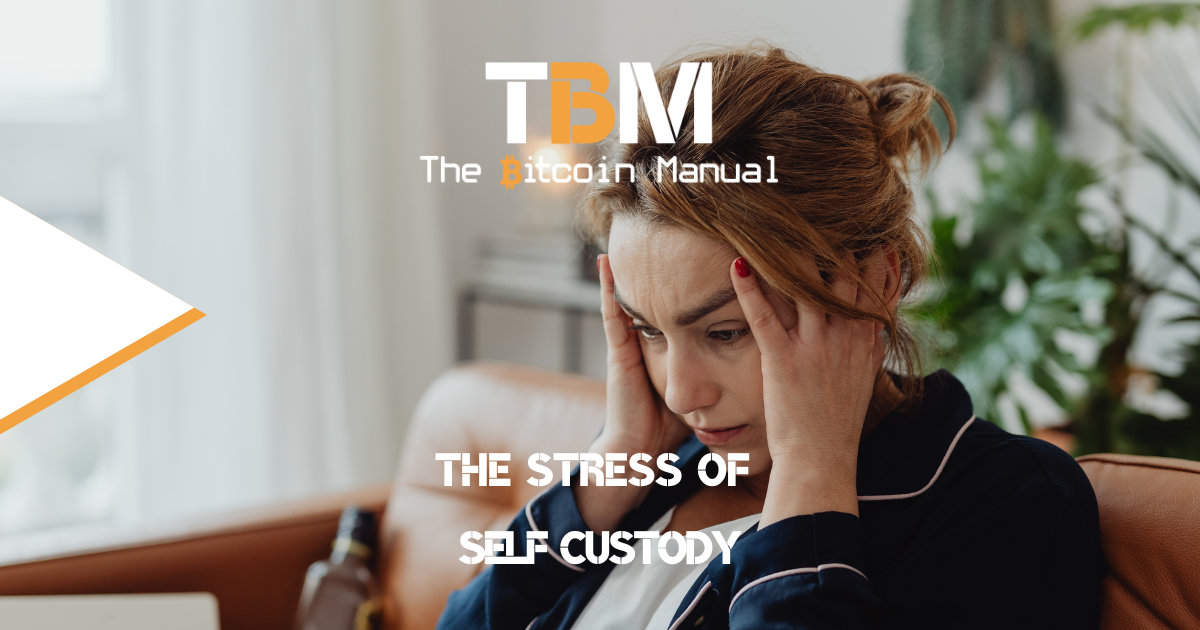Ah, Bitcoin, the asset that divides the dinner table, the political sphere, the financial world, and generations. When it comes to Bitcoin, it often feels like there is no room for nuance, and you’re encouraged to side with one of two camps.
Either it’s dismissed as a digital Ponzi made up of cryptographic proofs, while the other side, which I side with, sees it as a revolutionary store of value with ambitions to replace gold as the world’s monetary base.
Now, I am all for debating the merits and shortfalls of Bitcoin; it’s by no means perfect and has clear limitations holding it back in terms of realising the potential many a Bitcoiner sees looking into the future.
Those who think Bitcoin is worth nothing likely own none, and dismissing something when you haven’t experienced it is rather lazy.
- How can you have a qualified opinion on something you’ve never tried?
- How do you know it is a poor store of value, slow, or cumbersome to use if you’ve never performed a transaction?
- How do you know it’s worth nothing if you’ve never exchanged value for it or purchased something with it?
It sounds like you are writing cheques with nothing backing them; I guess that’s just the fiat mindset, right?
If you are of that ilk, I don’t have time to explain it to you, but if you have tried to use Bitcoin, you’ll know the stress of using it is oh so real—as real as a heart attack.
In fact, it can feel like having a heart attack at times.
Unbothered. Moisturised. Happy. In My Lane. Focused on not stuffing up my chance at generational wealth
It’s fun and games speculating on Bitcoin using an exchange and relying on a custodian to handle the asset on your behalf, but that’s not Bitcoin. You don’t own anything; you only have a promise to withdraw Bitcoin in the future, a future that is uncertain—ask FTX users.
Unless you’re dealing with an underlying peer-to-peer network, you’re playing pretend, and you won’t feel the magnitude of what you’re doing since you cannot achieve an irreversible final settlement.
The training wheels come off once you purchase Bitcoin and move it into self-custody. That’s when you will feel how real it is; waiting for that on-chain confirmation is likely one of the most stressful experiences you can have. Honestly, it hasn’t become easier; at least for me, it hasn’t.
Even after eight years of using the network, I still tend to lose myself in the moment. I own it, and I never want to let it go. Clicking send still has me sweaty, my knees weak, my arms are heavy with vomit on my sweater already, mom’s spaghetti.
As Bitcoin continues to appreciate relative purchasing power, the magnitude of what I am doing weighs on me even more. Back in 2016, sending 10 million Satoshis felt like a breeze, but doing it today would make me feel like I am disarming a thermonuclear device.
I expect that feeling to only translate to smaller increments of Satoshis over time. Where I once thought a 0.01 BTC was play money, now and into the future, I think I will feel a lot more gravitas toward moving that type of money.

The source of the stress and your steps to serenity
Like Uncle Ben always says before, he gets 5-dollar wrench attacked and shot for not giving up his private keys. With great power comes great responsibility.
Self-custody gives you ultimate control over your assets and what you do with them in the future, but it can also introduce a whole new level of stress.
So what can we do about it? Well nothing really, but get used to it, but there are a few best practices you can employ to try and put your mind at ease.
A quiet place
The first thing you will want to do is get rid of any distractions, put the phone on silent or do not disturb, send the kids for ice cream, retreat to your safe space where you can concentrate, and Daddy has some public keys to generate.
Now you can break out the signing device from the spot where you hid it, boot it up and start creating public addresses.

Check that public key
Once you have your keys, check, check, and double-check. Don’t take your copy-pasting for granted, nor trust that QR code you scanned. Hello, no, take no chances. Let that paranoia wash over you with full force.
Don’t be lazy and pretend to check the first few digits and last few digits of the key and assume it’s all gravy; check the whole thing. You’ve got all the time in the world, but you don’t have the luxury of sending Bitcoin to a burn address, so check, check, and triple-check.
Who else like this? #Bitcoin pic.twitter.com/cd27zEvOjJ
— Simply Bitcoin (@SimplyBitcoinTV) August 15, 2023
Start small
Suppose you’re transferring funds for the first time or booting up a new signing device. In that case, you should test the waters first, generate a public key for your first transfer, and move over 1 million Sats on-chain or in an amount you’re comfortable with, which won’t be a dust transaction in the future.
Don’t jump in with your life savings. Begin with a small amount, practice sending and receiving, and get used to the software and hardware device you’re using, generating keys, checking funds and managing your wallet interface.
Once you get a feel for it, you can move the entire bundle to a new public address under that wallet.
Mo Farah, Mo Money
Remember, Bitcoin is a marathon, not a sprint. Take your time, learn as you go, and don’t be afraid to ask questions in online forums, perhaps with an anonymous account for good OPSEC.
Oh, and don’t take the first person’s word for it; wait for several responses. Relying on one person’s opinion is a single point of failure, and it’s easy to get caught with your pants down. Remember, scammers are everywhere, and they’re all too happy to help you send them your Bitcoin.
If you’re really the jittery type and you require a helping hand, you can involve a custody service. Plenty have sprung up that specialise in assisting users with self-custody.
| Custody Service | Website |
|---|---|
| Bitcoin Well | https://bitcoinwell.com/ |
| Casa | https://casa.io/ |
| The Bitcoin Way | https://www.thebitcoinway.com/ |
| Unchained | https://unchained.com/ |
I stuffed up; what now?
Unfortunately, Bitcoin transactions are irreversible, so once you click sign and broadcast to the network, there’s no way to get them back. If you did muck up a transaction, make peace with it. Those Satoshis are now lost forever, and the supply of Bitcoin shrinks and we thank you for your contribution to digital scarcity.
If you did stuff up a transaction and you realise it immediately, you do have a small window to correct it using replace-by-fee, and it will cost you a pretty penny and isn’t a guarantee it will work.
Especially if you’re sending funds from a custodian since you don’t have control over the custodian’s wallet, you’re only using a request, and they action the on-chain transaction with the information you provided.
If all else fails, you can make up some nonsense story like the Tweet below to try to source some sympathy engagement, and who knows, someone might offer you a bailout.
It’s unlikely, but shoot your shot, right?
Most stressful hour of my life. My hardware wallet and keys got destroyed.
— Layah Heilpern (@LayahHeilpern) May 20, 2022
Someone reminded me of a secret letter I gave them years ago.
My assets have been restored. 🙏
An important reminder to employ the BEST self custody practices. Have backups!
Self-custody is part of the hedge
Self-custody is a rather unique method of holding wealth.
Sure, you could self custody precious metals, but there are physical limitations you would need to deal with depending on the amount you need to hold.
As for other assets, stocks, bonds, cash, and real estate, there is little to no chance of self-custody; most of what you own has counterparty risk, so why wouldn’t you want to have a sliver of your wealth taken off the table to which only you have access?
Having a permissionless asset should be part of responsible wealth management in the modern age, right?
Self-custody can be empowering, and the feeling of initial stress is normal. You would have to be crazy not to feel something when you’re moving your wealth; it’s your money, time, effort, and value you brought to this world; you should feel emotional about it.
Personally, I hope I never get used to the feeling of moving Bitcoin; I hope I never become complacent and always have this unnerving feeling forcing me to double-check every step before I click sign and broadcast to the network.
While the stress might never subside, the process becomes familiar with time, and you should become more confident when interacting with your Bitcoin as the years go by.
While transaction anxiety can feel like a pain, it pales in comparison to the feeling of seeing your savings stuck in a bankrupt entity or seeing your wealth inflated away or sized.
So don’t see that stress as bad; it’s part of the freedom of being your own bank.




